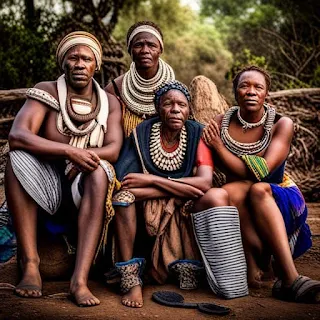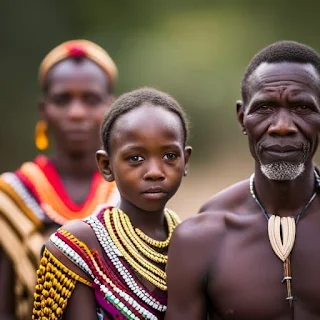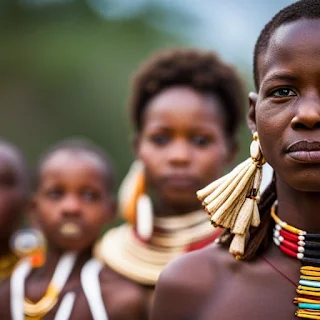Zulu Clan and Tribe Names with Meanings
A clan is biological members like a mother, father, brother, sister, and grandparents, and a tribe is like adding cousins, aunts, and uncles.
Zulu Tribe and Clan Differences
A clan is a close-knit family unit, a more focused family grouping, a tribe encompassing multiple clans, and a wider range of relationships.
Tribes include people who may not necessarily share the same direct lineage but are connected through broader cultural, linguistic, or geographic ties. Tribes often inhabit larger territories and may consist of multiple villages or settlements.A clan is a smaller social unit compared to a tribe. It is composed of families or individuals who share a common ancestor. Clans are organized around a common lineage or kinship, tracing their ancestry back to a particular forebear.
Identity:
Clans provide a strong sense of identity and belonging for their members. Members often share a clan name izithakazelo and are connected through their lineage.
Explaining the Use of Ama in Zulu Clan Names
In Zulu culture, ama signifies the collective identity of the clan and emphasizes unity and shared history among its members. So, when you see ama in front of a clan name, it signifies that it represents a community or group of individuals rather than a singular person.
In Zulu tribes, a clan name is referred to as izithakazelo. These names are a way of identifying and connecting individuals to their ancestral lineage, celebrating the achievements and history of their clan.
Ten popular Zulu clan names with their meanings
amaZulu
This is the largest tribe in South Africa and the name means Heaven or Sky.
amaNdlovu
Meaning Elephant, this clan is associated with strength and power.
amaMthembu
Derived from umthombo, which means fountain or spring, signifying life and sustenance.
amaButhelezi
This clan's name is derived from ubuthule, which means quiet or peaceful.
amaMkhize
The name is related to ukukhiza, which means to praise, indicating a clan of praise singers.
amaShabalala
This clan's name is said to be derived from ukushaba, which means to be cautious.
amaZuma
The name is related to izulu, meaning heaven or sky, symbolizing a connection to the divine.
amaCele
Derived from umcele, which means to separate, a distinctive or unique lineage.
amaMajozi
Meaning tears, this clan has connections to a historical event involving tears.
amaNtuli
Derived from umntu, meaning person, a people-centered or human-focused lineage.
Zulu Clan Proverbs About Family
Umndeni akufa nezinkanyezi.
A family does not die with the stars.
Ukuzalwa kweqiniso.
Being born is being born with truth.
Indlela ibuzwa kwabaphambili.
The way is asked from those who have walked it before.
These proverbs emphasize the enduring nature of family bonds, the value of truth, and the wisdom passed down through generations of clan and tribe kinship.
The Zulu tribes people primarily live in the southeastern region of South Africa, primarily in the province of KwaZulu-Natal. This area includes cities like Durban and Pietermaritzburg.
The Zulu people have a rich cultural heritage and have played a significant role in the history of South Africa. Zulu communities are also found throughout the diaspora, in other parts of South Africa and beyond due to migration and urbanization.
Did you know?
The pronunciation of izithakazelo in Zulu is roughly "ee-zee-tha-ka-zeh-loh." The "i" in "izithakazelo" is pronounced like the "ee" in "see," and the "th" sound is similar to the "t" in "top." The "a" is pronounced as in "father," and the "e" sounds like the "e" in "let." The "o" is pronounced as in "go."







